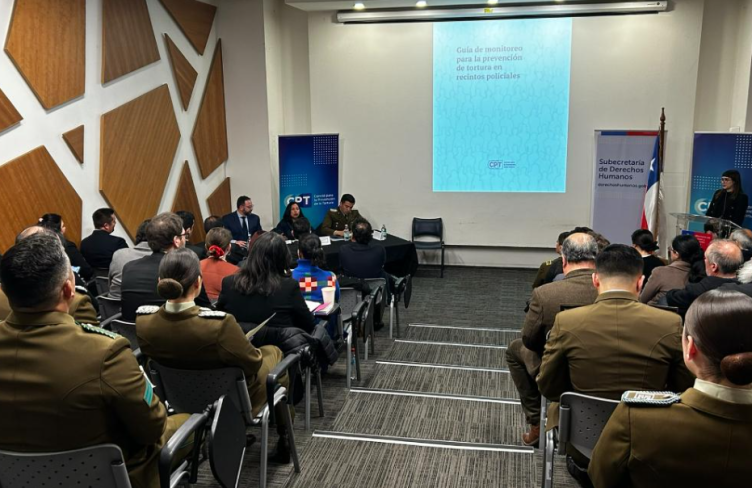
Appropriate Adults (AA) are an important additional protection that were introduced in the United Kingdom to counterbalance the pressure and compulsion commonly felt by children and other vulnerable suspects in police custody.
They are one of many procedural safeguards that have been introduced following serious miscarriages of justice. In one example, from 1977, a report into the erroneous conviction of three persons for the murder of Maxwell Confait noted that two of the suspects in the case were children and the third had a mental age of 14. Yet, none of the suspects were interviewed in the presence of a parent and the form of questioning used to obtain confessions from each suspect was both physically and psychologically coercive.
Cases such as this demonstrated that suspects were at high risk of being coerced into giving false confessions and that persons who were psychologically vulnerable, such as children, were at particular risk. The Confait report found that, although the methods used by police were not a breach of any rule at the time, such methods were nevertheless unfair, oppressive and had plainly increased the chance of false confessions.
As a result, law reform in the United Kingdom led to the introduction of a number of safeguards, and the presence of an AA is now required for any child or vulnerable adult in police custody.[1] The role of the AA is to accompany the suspect during the police investigation, including at moments of particular vulnerability, such as during strip-searches, collection of intimate samples and the suspect interview itself.
AAs therefore act as an important safeguard to protect children and vulnerable adults from coercion, abuse and other ill-treatment at moments of significant risk.
At the interview, police explain that the AA should contribute, assist, ask questions and ensure that the process is fair.[2] An AA is therefore in the unique position of witnessing the police interview as an intermediary, being neither aligned to the suspect nor the police, and supervise the fairness of proceedings.
AAs therefore act as an important safeguard to protect children and vulnerable adults from coercion, abuse and other ill-treatment at moments of significant risk. And, as the role extends to all areas of police custody and cannot be withheld by police or refused by a suspect, the AA can offer a broader scope of protection than that offered by lawyers.
In many cases, parents and other family members are asked to act as the AA in the first instance. However, in cases where family members are unavailable, unwilling or inappropriate, the police call on a trained AA from a voluntary scheme who are available 24/7 for this purpose.
The activities of an AA include offering support, assistance and advice to the suspect. This includes meeting the suspect privately in custody, helping them to understand their rights, and to communicate with police. AAs should also observe police behaviour and ensure they are acting properly and fairly. Where police are not acting properly, the AA should intervene and report this to a senior officer.
Despite the potential to protect a suspect, research has shown that contributions by AAs vary considerably and they don’t always make interventions at the appropriate time or at all. For instance, it has been recognised that parents acting as AAs are often unhelpful in the interview and may even put additional pressure on the suspect.
However, trained AAs from voluntary schemes are seen to be more objective and can assist the police to be less confrontational or aggressive, even if limited funding and training has reduced the opportunity for them to effectively supervise compliance with international standards.
A range of safeguards are increasingly seen as fundamental in the protection of international standards for investigation and interview. The Méndez Principles on Effective Interviewing (paras 138-140) recognise the situation of children and others with psycho-social and intellectual disabilities may make them vulnerable to suggestion and pressure during an interview and recommends that additional measures of protection may be appropriate, including the presence of an adult acting as an intermediary.[3]
And this is the point. Even in circumstances where suspects are accompanied by a lawyer, the particular needs of some detainees are such that additional measures of protection are required to ensure their human rights are protected, that they are able to contribute effectively and that the process is fair. AAs were introduced in the UK to offer additional protection to psychologically vulnerable adults as well as children and could thus be a useful tool in the implementation of standards for police interview, such as those described in the Méndez Principles.
Matt Sands worked as an Appropriate Adult from 2021 to 2023 and now acts as an Independent Custody Visitor as part of the United Kingdom’s National Preventive Mechanism in police custody. His work also examines implementation of the Mendez Principles and safeguards to protect against abuse.
___________________________________________________
[1] The Police and Criminal Evidence Act 1984 (PACE) Code of Practice C 1.13(d) provides for an appropriate adult to be called to the police station whenever a juvenile or mentally vulnerable person has been detained in police custody.
[2] For further information, see the website of the National Appropriate Adult Network, which sets out the role and duties of AAs.
[3] Principles on Effective Interviewing for Investigations and Information Gathering, May 2021. Retrieved from: www.interviewingprinciples.com.


